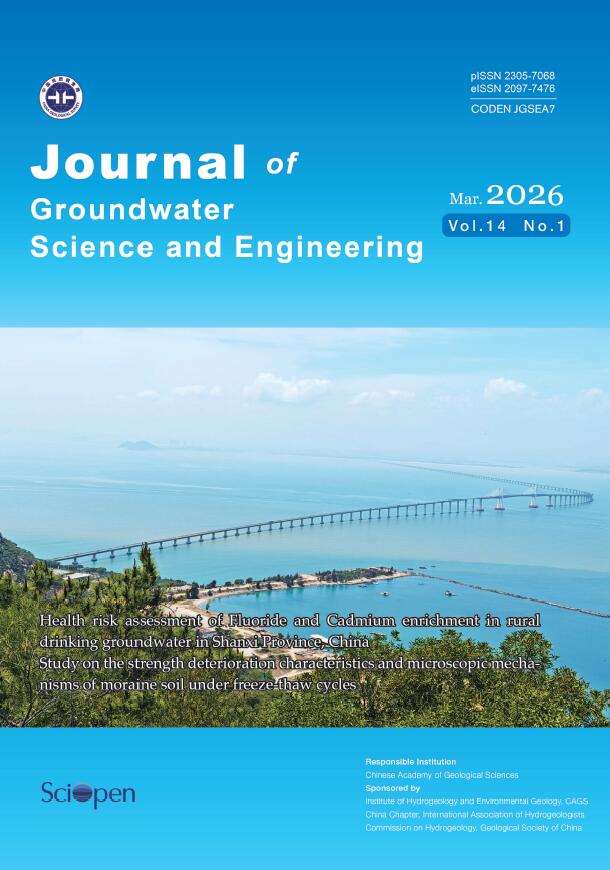Online First
Articles in press have been peer-reviewed and accepted, which are not yet assigned to volumes/issues, but are citable by Digital Object Identifier (DOI).
Display Method:
1.8
Impact Factor(2024)
3.4
CiteScore 2024
Editor-in-ChiefHOU Chun-tang
Sponsors
Institute of Hydrogeology and Environmental Geology (IHEG), CAGS
China Chapter, International Association of Hydrogeologists (IAH-CC)
Commission on Hydrogeology, Geological Society of China(GSC-CH)
 NewsMORE+
NewsMORE+
- 本刊正式获批国内出版刊号2025/11/07
- ISSF9 Special Issue-Flash Floods and Dam Management in Arid Areas2025/09/25
- Indexed in ProQuest2025/02/14
- JGSE-ScholarOne Manuscript to Be Officially Launched on June 1, 20242024/05/30
- Cooperation with Tsinghua University Press2023/02/20
- Included in DOAJ2022/11/29
- Indexed in CAS2021/09/26
 DownloadMORE+
DownloadMORE+
 Top ViewedMORE+
Top ViewedMORE+
- Using geospatial technologies to delineate Ground Water Potential Zones (GWPZ) in Mberengwa and Zvishavane District, Zimbabwe
- Assessment of porous aquifer hydrogeological parameters using automated groundwater level measurements in Greece
- Ecosystem-driven karst carbon cycle and carbon sink effects
- Sensitivity assessment of strontium isotope as indicator of polluted groundwater for hydraulic fracturing flowback fluids produced in the Dameigou Shale of Qaidam Basin
- Groundwater contaminant source identification based on QS-ILUES
 Top DownloadedMORE+
Top DownloadedMORE+
- Construction of ecological environment of oasis in Qingtongxia Irrigation District
- Analysis of bromate and bromide in drinking water by ion chromatography-inductively coupled plasma mass spectrometry
- Application of HYDRUS-1D in understanding soil water movement at two typical sites in the North China Plain
- Study on the residence time of deep groundwater for high-level radioactive waste geological disposal
- Artesian Flowing Wells Field of Phu Tok Aquifer
 E-mail alert
E-mail alert Rss
Rss

 Online Submission
Online Submission Peer Review
Peer Review Office Work
Office Work Editor-in-chief
Editor-in-chief Links
Links





